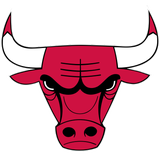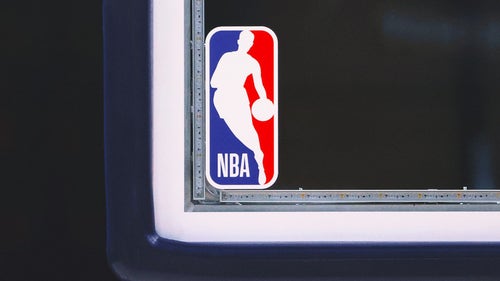
How'd the Chicago Bulls go from giant mess to giant slayer?
The Chicago Bulls didn’t come out of nowhere. They came from a quagmire, having built a disjointed roster that played disjointed basketball. The philosophy and the personnel seemed incongruent. Most every night Chicago played in a way that confirmed that theory, with even its successes coming in spite of the team’s lack of connective tissue. Jimmy Butler played magnificently. Robin Lopez and Taj Gibson (before he was traded to the Thunder) proved reliable in their roles. Everything else was unstable — from effort levels to collective focus to the underlying rotation.
This is the team that claimed a 2-0 series lead over the top-seeded Boston Celtics. It is astounding the way the right matchup and heightened attention to detail has brought so many of the Bulls’ issues to resolution. What was a cramped half-court offense has scored at the same rate as the playoff Warriors — some 6.5 points better per 100 possessions than Chicago managed in the regular season. A merely solid defense has become smothering and preemptive. It would have been so easy for the Bulls to play out their season with a limp, unfocused series. Instead, they locked in on the details in a way that exposed Boston’s every weakness.
The Celtics go nowhere without Isaiah Thomas, who is at his most lethal when he catches the ball on the move. Forcing Thomas’ defender to trail him leading into a pick-and-roll mitigates the height disadvantage he faces in most every matchup; by removing one defender from the play and pitting Thomas against a big in open space, Boston gives their strong, clever point guard all the room he typically needs. Chicago has been all over it. A fully engaged Rajon Rondo — the kind years' worth of evidence suggested we never would see again — has disrupted the timing of many of Thomas’ catches, making it more difficult for him to turn the corner into a downhill drive. Deny that rhythm and you deny the offense. Boston without its flow is reduced to its component parts: an undersize star who can be easily trapped, a single facilitating big, and situational scorers who don’t handle frantic situations well.
Rondo has been able to jump the gap on little pitch-offs between Thomas and a Celtic big, which benefits the Bulls more in triggered apprehension than in turnovers. The defensive exchanges on the perimeter have been so tight for Chicago that Boston’s passers are thinking twice. Those hesitations dam the stream from one action to the next that carries the Celtics’ offense. Lopez, a chronic drop man in pick-and-roll coverage, is showing up higher on Thomas to help stall things out. He can’t do that without trust that his teammates would rotate if something shakes loose, and thus far they’ve been all over it. The specificity of the Bulls’ execution led Rondo to do the unthinkable: offer unsolicited praise for his coach. "Fred Hoiberg had done a hell of a job getting us prepared,” Rondo said.
Even great defensive players don’t just roll out on the court to enact goals this specific. Hoiberg and his staff have done a great job of indicating where Boston’s offense can be pinched for maximum effect. That Chicago is actually pulling off that game plan is a tribute to the players’ reads in the moment. Butler has swallowed possessions whole. Lopez and Cristiano Felicio are moving their feet and keeping the coverage alive. Dwyane Wade is getting back and working to get around screens — a marathon against Boston. Even rookies Paul Zipser and Bobby Portis are managing to keep attached on enough exchanges to compete.

The only way out for the Celtics is to grind through these possessions and hope their role players keep their poise. Every quick trigger on a three-pointer or mishandled drive into traffic can be exasperating when so little is going right. Yet part of the reason so little is going right is that the Bulls, through the force of their rebounding alone, have completely nullified the Celtics’ transition offense. We’re at the point when just having Lopez on the floor has correlated with hyper-efficient offense, in no small part due to the fact that Chicago turns 41.3% of its misses into second chances when he’s around.
Boston has no answer. Al Horford, who is otherwise a terrific all-around player, is at a loss when dealing with an instinctive, physical 7-footer whose specialty comes alive in activity. Attempts to commit multiple bodies to box out Lopez (who has totaled 12 offensive rebounds himself over two games) have only surrendered easy angles for Rondo or Butler to swoop in.
Things can still get crowded for the Bulls, whose effective field goal percentage in this series has been virtually identical to the Celtics’. The difference is that Chicago has made Boston the second-most turnover-prone team in the playoffs while pulling down so many of its own misses. Possession itself has become the battleground; so long as the Bulls are able to give themselves so many opportunities to score, their occasional difficulties to do so simply will not matter. Chicago will need some hot shooting here and there — like it's gotten from Wade (4 of 6 on threes) and Portis (4 of 5), along with Lopez from mid-range (7 of 8) — but the Bulls' play on the margins has pulled the second round of the playoffs within reach.
If the Bulls thought all along that this would be in the cards, they wouldn’t have traded Gibson for a longer-term prospect. If Hoiberg knew Rondo still had this level of play in him, he wouldn’t have benched him outright back in January. If Butler and Wade had this level of trust in their teammates, they wouldn’t have aired their grievances to the media in the middle of the season. These Bulls have not been slowly brewing. They only now came to a quick boil with all of the conditions just right. No matter: Chicago, odd a team as it may be with its “three alphas” and its competing dynamics, is poised to take this first-round series on its own terms.
“You can't put every team in the league together like Golden State has or like Cleveland has,” Wade said at the start of the season. “Where people go wrong is that everyone tries to play their game.”
This article originally appeared on





